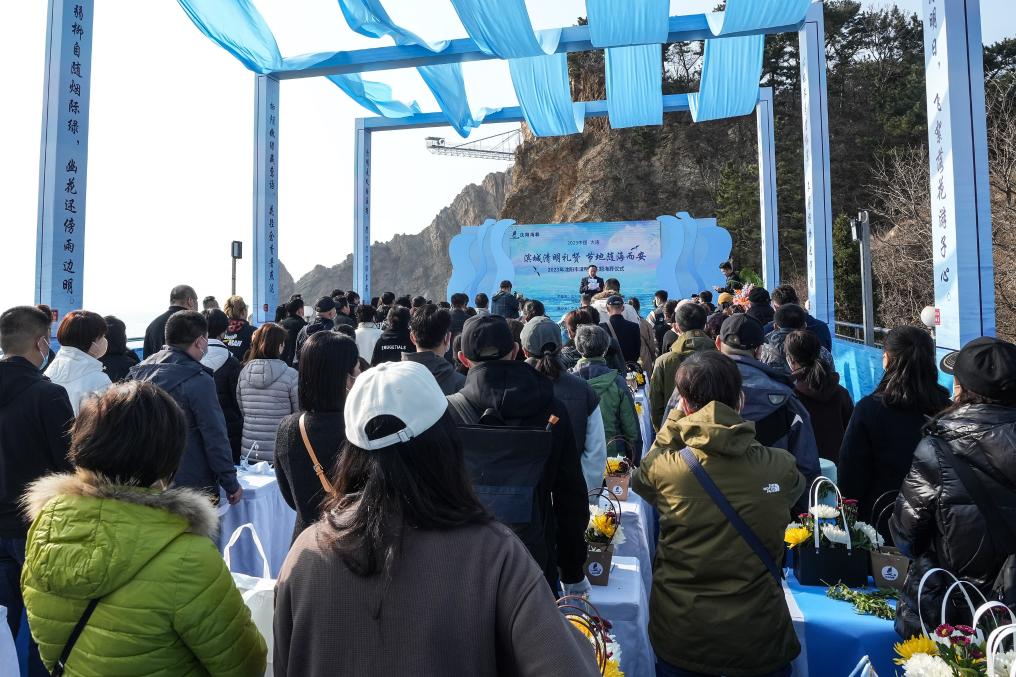BEIJING: Amid gentle sea breezes and blooming memorial flowers, and through 3D-printed facial restoration of the deceased and AI-powered farewells, China is breathing new life into traditional tomb-sweeping rituals on Qingming Festival, which falls on Friday.
With its dual identity as both a solar term and a festival, Qingming, which has a history of over 2,500 years, sees tens of millions honor ancestors through tomb-sweeping rituals, both on-site and online, embodying the Confucian ethos of “revering the departed to nurture virtue.”
In a modern twist on Qingming customs, technological and ecological approaches now vie with the more familiar incense and paper offerings.
Guided by green policies and shifting public attitudes, a quiet dialogue has unfolded between tradition and modernity, as green burials and minimalist tributes gain traction, blending the cultural heritage of this age-old Chinese day of remembrance with modern values.
At dawn, 112 families boarded a charter boat off Tiger Beach in Dalian, a coastal city in northeast China’s Liaoning Province, and lowered biodegradable urns containing their loved ones’ ashes into the Bohai Sea.
Chrysanthemum petals and handwritten memorial cards floated on the waves as seagulls circled above — a tranquil alternative to smoke-heavy traditional open-air ritual burning.
“My father loved the ocean. Now, he’ll forever be a part of it,” said Yang Lijiao, who came from the provincial capital Shenyang, along with the other families on board. The ritual was organized by Shenyang’s only government-contracted sea burial service provider.
Her eyes fixed on her father’s urn as it drifted away before slowly descending into the depths. “Wherever the ocean flows, Dad’s memory will live on.”
Liaoning has pioneered sea burials for over a decade, offering services in cities like Dalian, Yingkou and Dandong. Official statistics show that a total of 71,386 sea burials were performed between 2012 and 2023, saving approximately 290,000 square meters of land — equivalent to 40 soccer fields. “Policy upgrades and public outreach have driven sea burial adoption,” explained Yao Ning from Shenyang’s civil affairs bureau. The province now provides subsidies of up to 2,000 yuan (about 278 U.S. dollars) per sea burial. –Agencies





